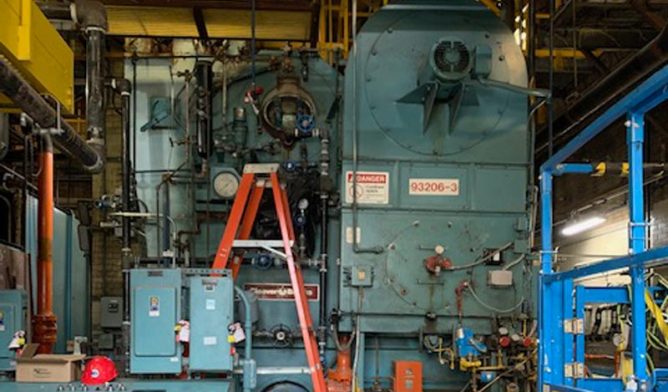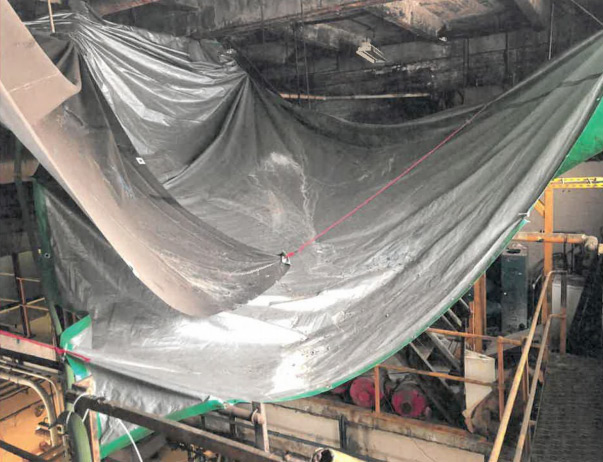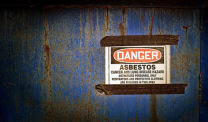New York’s MTA Ignored Asbestos Dangers for Years
Asbestos Exposure & BansWritten by Matt Mauney | Edited by Walter Pacheco

Glaring safety issues involving asbestos exposure within the Metropolitan Transportation Authority extend further than the East New York bus depot in Brooklyn, a report from the agency’s inspector general alleges.
Inhaling or ingesting tiny asbestos fibers in the air can lead to serious health conditions later in life, including mesothelioma cancer.
The inspector general report, released Monday, shows MTA managers ignored asbestos safety concerns at bus and train facilities across New York City for years.
“We brought these issues up with management, and it was ignored,” a veteran engineer who works in the boiler room at the East New York depot told The Mesothelioma Center at Asbestos.com on condition his name not be used in order to speak candidly about MTA issues. “All these problems could have been mitigated and stopped in their tracks, but they ignored it.”
Asbestos-containing materials were found in disrepair in the boiler rooms of at least six MTA depots throughout the city. Other unsafe working conditions, including mold, exposed electrical wires, vermin and crumbling exteriors, were also documented in the report.
“These concerns were known to some in management — and have been known for some time — but the problems were not being addressed,” the inspector general’s office wrote in a letter to NYC Transit President Andy Byford. “How these facilities fell into such disrepair, who failed to take appropriate action and what needs to happen is the subject of [the office’s] continuing audit.”
Last month, the New York Daily News reported MTA’s East New York bus depot in Brooklyn had exposed thousands of workers to asbestos for decades through the aging building’s ventilation system.
“We’re told, ‘If you see something, say something,’ but if you see something, you’re going to be interrogated,” the engineer said. “It’s a very dangerous position to be in and has been part of the transit culture here for years.”
Asbestos Materials Rampant in MTA Depots
In addition to the asbestos found at the East New York depot, the inspector general reported dangerous conditions at the following MTA bus and train facilities:
- 207th St. Train Yard, Upper Manhattan: Asbestos materials were found on the roof, which was leaking on electrical equipment inside the building.
- 205th St. Train Facility, Bronx: The exterior was crumbling, and bricks that fell from the facade of the building crushed an air conditioning unit and railing.
- 240th Train Barn, Bronx: The boiler room had exposed electrical wires.
- Jerome Ave. Train Yard, Bronx: The boiler room was flooded and had clogged drains as well as exposed electrical wires.
MTA officials have been aware of the crumbling infrastructure of the 205th St. building in the Bronx for a least a decade, the report said. The boiler room of the facility was decommissioned more than 10 years ago, and a makeshift wooden shed was constructed to house the equipment. Inspectors discovered the shed contained leaks, rotten wood, black mold and a rat infestation.
The leaky roof of the 207th St. train yard in Manhattan is set to be repaired, according to the report. Managers at the facility installed a tarp to catch water and prevent asbestos debris from entering the building.
MTA spokeswoman Meredith Daniels told the Daily News that the agency’s top priority is the safety of its workforce. NYC Transit has launched a full system-wide inspection and already has begun corrective actions since the release of the inspector general report, Daniels said.

Why Is Asbestos Still in MTA Buildings?
Asbestos is a naturally occurring mineral once coveted by the construction and manufacturing industry for its ability to insulate and fireproof building materials and machinery.
It was used extensively in heating and air conditioning equipment until 1980, when the federal government increased safety standards.
The East New York depot was built in 1947. Documents show much of the facility’s ventilation equipment dates to then and includes asbestos-laced cloth used to dampen vibrations on 57 of the building’s air ventilation units.
These units have pumped air throughout the first three floors of the depot for decades, potentially exposing the daily workforce of nearly 1,000 employees to toxic asbestos fibers.
“This does not surprise me. These situations occur frequently,” Dr. Raja Flores, thoracic surgeon and mesothelioma specialist at New York’s Mount Sinai Cancer Center, told The Mesothelioma Center at Asbestos.com. “Many do not want to identify asbestos because it costs a lot of money to abate. Many would just rather turn a blind eye to it.”
In 2017, emails from MTA officials revealed asbestos was found in the depot’s boiler room. Those materials were reportedly removed in August 2018.
The depot also employs high school students as interns. At least 20 students were exposed to asbestos while working at the depot, according to the Daily News. The engineer who spoke on anonymity said the teenagers would come into the dangerous boiler room to check compressors and other equipment. They also worked on transit buses where the exterior paint was sanded to expose them to hexavalent chromium, another known carcinogen.
“They were never told, nor were their families notified,” the engineer said of the interns. “Their parents were ensured that their kids would be safe. I’ve got news for them: That’s not the case.”
Flores sees the effects of asbestos exposure every day at Mount Sinai Cancer Center in Manhattan. Asbestos-related diseases such as mesothelioma can take 20 to 50 years to develop after initial exposure to the toxic mineral.
In 2017, Flores was named to the Society of Honorary Police Surgeons, stemming from his continued work with 9/11 first responders. He has long been an advocate for legislation for a complete ban on asbestos.
The U.S. remains one of the only industrialized countries without a comprehensive ban.
“The problem is that years later deadly cancers develop in unsuspecting victims who are exposed to this legacy asbestos — asbestos placed decades earlier that gets disturbed,” Flores said. “Usually firemen are at the greatest risk, but situations like the MTA is facing now occur way too often. We need a federal asbestos ban in the United States and right-to-know laws to protect innocent workers.”







